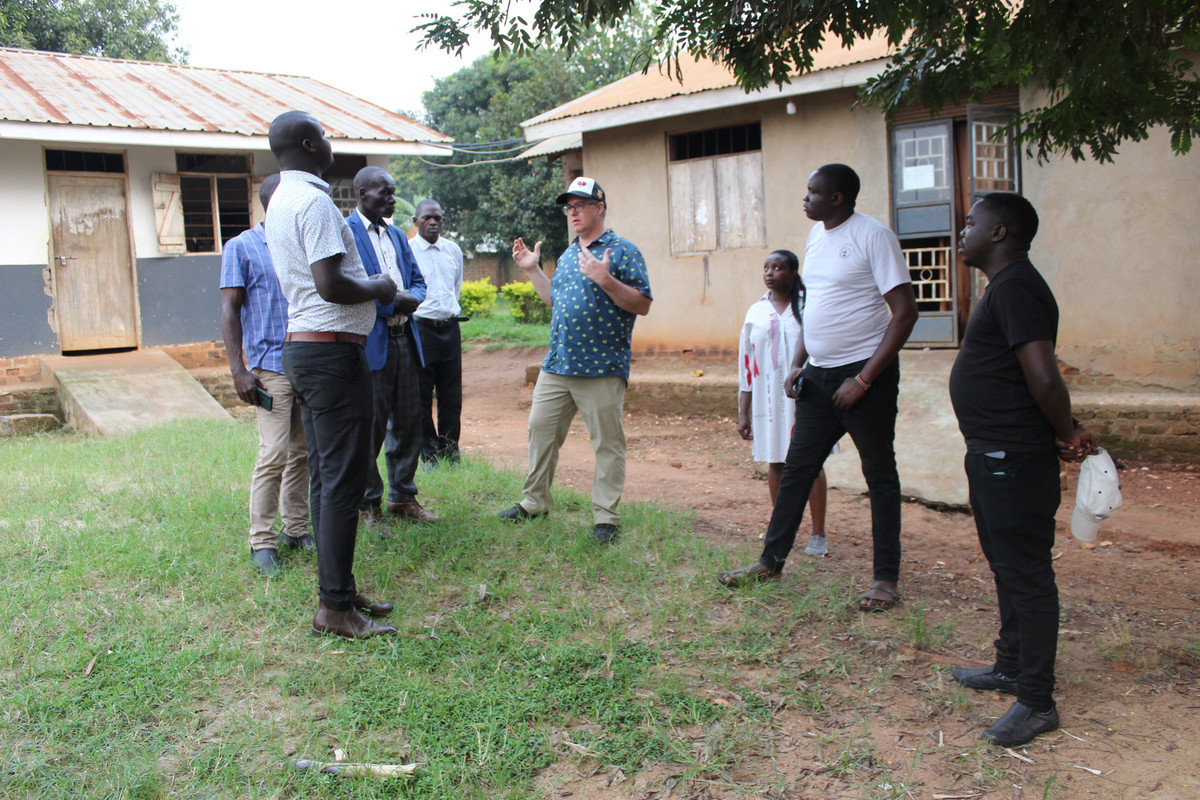Comrades to Youths Africa: E-Shule Project, providing Sustainability and Solar Training to empower the next generation of African students.
Introduction
Comrades to Youths Africa is a community-based organization in the Mayuge District in Uganda, East Africa, formed in 2020 and registered as an NGO in 2021. The Comrades to Youths Africa E-Shule project is an initiative aimed at introducing sustainability education with a focus on Solar education and Web3 technologies in Ugandan schools.
We impact youth in rural Africa to be environmentally conscious and empower them with knowledge and skills for employment and to change the world by promoting environmental conservation. In addition to building our curriculum, working to bring solar to our partner schools and creating a specific solar education module, we have developed a Monitoring and Evaluable framework that we will utilize to measure and improve our impact.
Overview
E stands for Ecology, Empowerment, and Electronic. Shule is a Swahili word that means School. By integrating the principles of Ecology, Empowerment, and Electronic (E) in schools (Shule), the E-Shule project seeks to equip students with the necessary skills and knowledge to tackle community challenges of the future, especially climate change. It begins as a pilot in one Ugandan school.
By embracing Web3 ideology, the project aims to utilize decentralized identity systems and ecosystems to empower both students and staff. Through the integration of Web3 technologies into educational resources and activities, students will gain hands-on experience in sustainability and future-oriented practices.
The project's activities include sustainability-focused programs and skill-building initiatives focused on renewable energy, environmental conservation and innovation aiming to nurture a generation of environmentally conscious and empowered individuals.
Update, Progress and Impact
The GG19 round led us to establish a valuable connection with the Solar Foundation. Through this collaboration, we are in the process of providing some Ugandan schools with solar panels and full solar systems. We are also designing and developing a solar education module, the Solar Educate Project. This project aims to integrate solar literacy into the E-Shule curriculum, serving as both an innovative educational tool and a medium for environmental awareness among students.
We have also recently formed a partnership with Solarpunk Nomads, with whom we're exploring the development of a Bamboo bicycle project. We're considering extending this initiative to schools for climate change education activities. This aligns well with the Solar Educate curriculum we're developing alongside The Solar Foundation.
We're also pleased to share that we have identified a pilot school for our project. Currently, we are in the final stages of preparing to formalize our partnership through a Memorandum of Understanding (MoU). This step brings us closer to realizing our vision of empowering African schools with sustainability and Web3 technologies.
We engaged in discussions with The Solar Foundation to explore ways to support rural schools in Mayuge with solar power. This initiative aims to enhance education activities, enabling students to study at night and providing security lights.
We also hosted Jon Ruth from the Solar Foundation, who visited schools to assess how they could be supported with solar panels.
We also participated in discussions with the Solarpunk Nomads regarding the bamboo expedition bike project in Uganda. The goal is to conduct Climate Advocacy initiatives in Uganda.
We are partnering with two schools to implement the Solar Educate program, aiming to reach over 200 students in total.
Lessons Learned
In our journey, we encountered challenges in securing a pilot school for our project. However, with guidance from another climate solutions grantee, Earth-Based Soul of the Solarpunk Guild, we were prompted to reassess our approach. We realized the importance of carefully considering our community outreach strategy to minimize the risk of project rejection in the future.
This experience highlighted the significance of seeking advice and leveraging the expertise of experienced professionals within relevant communities. Moving forward, we are committed to implementing a more strategic and informed approach to our community engagement efforts. By doing so, we aim to mitigate potential risks and enhance the success of our project initiatives.
Roadmap and Plans for GG20 funds
-
District officials and Parents Outreach and Engagement. We shall allocate funds to introduce the project to district officials and parents of the children in the pilot schools, raising awareness, gathering feedback, and fostering greater community involvement and support.
-
Capacity Building and Training. We shall invest some of the funds in training programs for staff and school teachers to understand how to integrate sustainability and Web3 ideologies.
-
Development of Solar Educate curriculum. We shall use some of the funds to develop and design the Solar Educate curriculum that will be used to teach the students on solar energy sessions and hands-on activities to deepen students' understanding of solar energy and environmental sustainability.
Additional Needs
The schools we work with are located in rural, low-income communities. We would like to find an affordable way to empower these off-grid partner schools with reliable internet access. Please reach out if you have any ideas on how this can be accomplished.
Comrades to Youths Africa: E-shule Project History
-
accepted into Climate Round 11 months ago.



